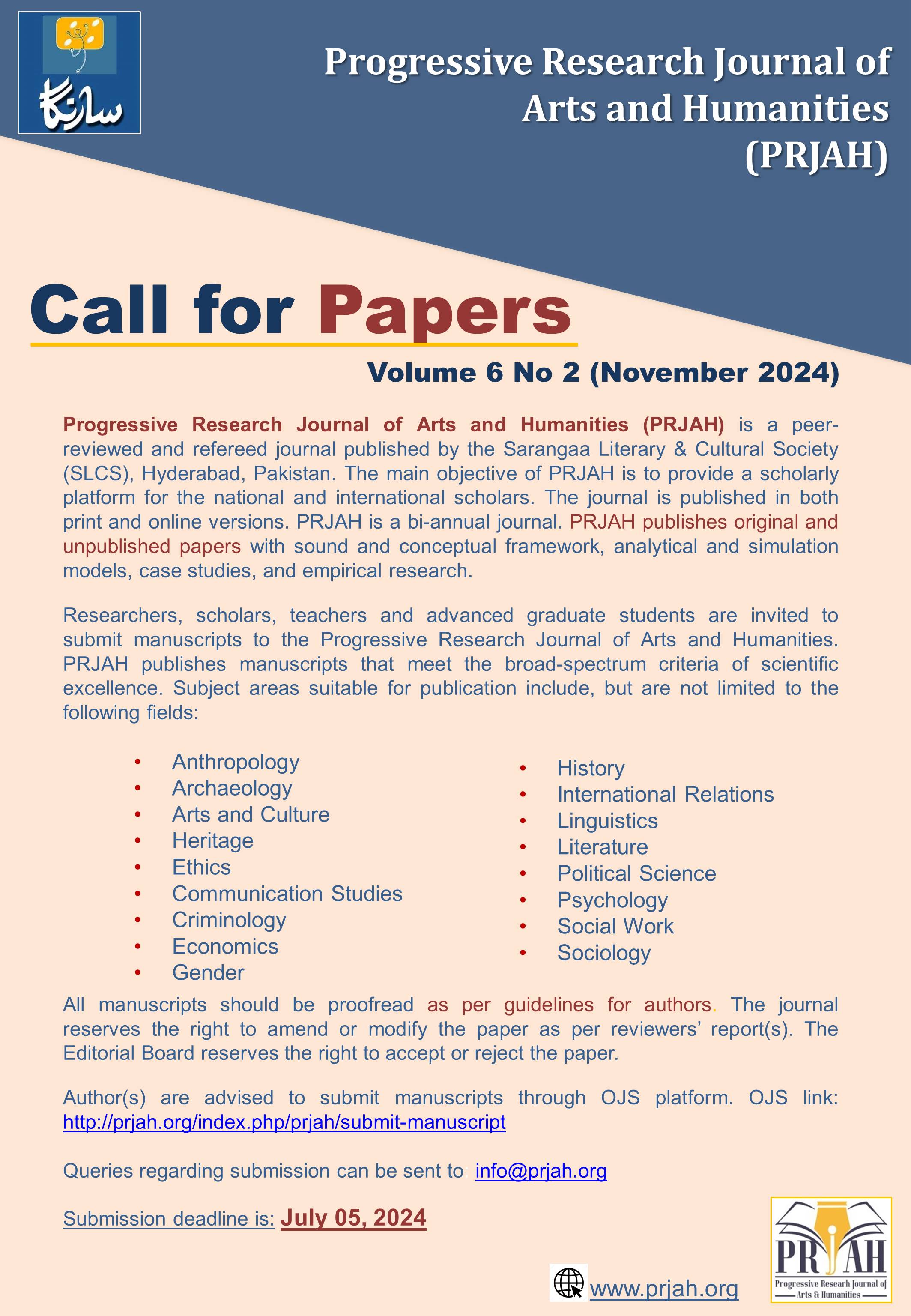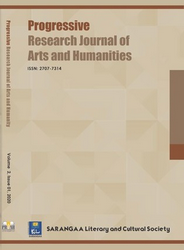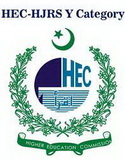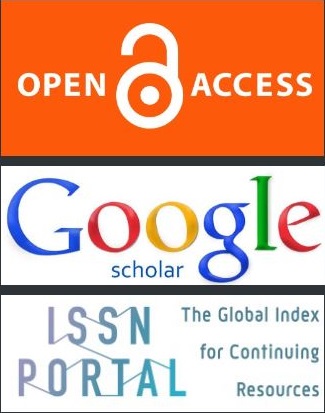Identity Politics and Decolonising the Construct of ‘South Asia’
Keywords:
Identity, Politics, History, South AsiaAbstract
Colonialism not only affected the economy and political structures of the colonised regions, but it also had long-term impacts in shaping and re-shaping the identities of those regions and the people. The colonial rulers saw everything indigenous through the Western lens and tried to simplify it to control and govern. For similar purposes, the colonial rulers tried to erase the multiplicity of identities in the region deliberately and labelled it as ‘South Asia’ and used it as a tool to simplify governance over the region’s vast and diverse populations. In this way, colonials not only strengthen their control over the region but also try to change the cultural map of the region. This paper will explore how the term ‘South Asia’ originated and became so popular. This paper also explores how the colonial rulers tried to shape the region’s identity through the Western perceptions of the region, presenting it as a monolithic, exotic, and often inferior in culture through the tools such as modern education, census politics, bureaucratic correctness and oriental historiography.References
Agnihotri, R.K., 2021. Linguistic diversity and marginality in South Asia. In Handbook of education systems in South Asia (pp. 1401-1436). Singapore: Springer Singapore.
Ashikali, T., Groeneveld, S. and Kuipers, B. (2020). The role of inclusive leadership in supporting an inclusive climate in diverse public sector teams. Review of Public Personnel Administration, [online] 41(3), pp.497–519. doi:https://doi.org/10.1177/0734371X19899722.
Biswas, D., 2022. Exploring orientalism in early colonial India (c. 1784-c. 1883).
Cohn, B.S., 2021. Colonialism and its forms of knowledge: The British in India.
Dubey, G. and Haneef, I., 2021. Status of Indian Muslims with Special Consideration to Their Educational Attainment. Available at SSRN 3923817.
Freeman, R., 2022. The Literature of Hinduism in Malayalam. Wiley Blackwell Companion to Hinduism, pp.143-162.
Fuchs, M.M. and Fuchs, S.W., 2020. Religious minorities in Pakistan: Identities, citizenship and social belonging. South Asia: Journal of South Asian Studies, 43(1), pp.52-67.
Ghoshal, S., 2022. The Measure of Minority: Producing Unequal Citizens through Science and Politics, India 1870-1950. Columbia University.
Gorshenina, S., 2021. Orientalism, postcolonial and decolonial frames on Central Asia: Theoretical relevance and applicability. Bruno De Cordier, Adrien Fauve, Jeroen Van Den Bosch, European Handbook of Central Asian Studies: History, Politics & Societies, Stuttgart: Ibidem-Verlag, 2021, pp.177-243.
Ideland, M., 2018. Science, Coloniality, and “The Great Rationality Divide” How practices, places, and persons are culturally attached to one another in science education. Science & Education, 27(7), pp.783-803.
Jain, S. and Swamy, A., 2020. Hindu Nationalism, Identity Politics, and the Indian Diaspora in the United States. The Wiley Blackwell Companion to Race, Ethnicity, and Nationalism, pp.165-181.
Jain, S., 2024. Culinary Crossroads: The Integration of Eastern Cuisines in the Western Gastronomic Landscape. Available at SSRN 4749328.
Kapur, P., Misra, G. and K. Verma, N., 2022. The Challenge of Understanding Religious Diversity in India. In Psychological Perspectives on Identity, Religion and Well-Being: Empirical Findings from India (pp. 47-60). Singapore: Springer Nature Singapore.
KC, S., 2021. Misrepresentation of East in Jhabvala’s Heat and Dust (Doctoral dissertation).
Lall, M. and Anand, K. (2022). Bridging Neoliberalism and Hindu Nationalism The Role of Education in Bringing about Contemporary India. Bristol: Bristol University Press.
Malji, A., 2018. The rise of Hindu nationalism and its regional and global ramifications. Education About Asia, 23(1), pp.39-43.
Mandavilli, S.R., 2020. Towards a comprehensive compendium of factors impacting language dynamics in post-globalized scenarios: Presenting principles, paradigms and frameworks for use in the emerging science of language dynamics. ELK Asia Pacific Journal of Social Sciences, 6(3).
Mann, H.S., 2021. 1984 and the Anti-Sikh Pogroms: Gauri Gill’s Photo Narrativization of the (Continuing)” Horrors of Those Weeks”. In Mediated Terrorism in the 21st Century (pp. 127-158). Cham: Springer International Publishing.
Mitra, D., 2022. The changing nature of dominant castes: a case study of caste-based identity construction in Varanasi. India Review, 21(2), pp.129-152.
Mohammad-Arif, A., 2014. Introduction. Imaginations and Constructions of South Asia: An Enchanting Abstraction?. South Asia Multidisciplinary Academic Journal, (10).
Mukharji, P.B., 2021. Race in colonial South Asia: Science and the law. Routledge Handbook of the History of Colonialism in South Asia, pp.193-205.
Patterson, P. and Israel, G.L., 2023. Ancient and Early Medieval India. He Huaka’i Honua: Journeys in World History I, to 1500 CE Honolulu CC HIST 151.
Prakash, G., 2023. Writing post-orientalist histories of the third world: Perspectives from Indian historiography. In Imperialism (pp. 230-255). Routledge.
Ray, S., 2018. Beyond divide and rule: Explaining the link between British colonialism and ethnic violence. Nationalism and Ethnic Politics, 24(4), pp.367-388.
Ringrose, D., 2018. Europeans Abroad, 1450–1750. Rowman & Littlefield.
Sarangapani, P.M. and Pappu, R., 2020. Education systems in South Asia: An introduction. Handbook of education systems in South Asia, pp.1-26.
Shukla, S., 2021. Common South Asian Identity and Regional Integration in South Asia.
Singh, N., 2024. Religion-making in South Asia: An interstitial perspective. The Indian Economic and Social History Review, 61(1), pp.67-96.
Szivak, J., 2021. A study of the transnational journeys of British Asian music and musicians in the 21st century (Doctoral dissertation, Birmingham City University).
Trivedi, H., Aveling, H. and Yamada, T., 2022. South and Southeast Asia. Literature: A World History, 4, pp.1091-1178.
Uddin, N., 2019. The state, transborder movements, and deterritorialised identity in South Asia. Deterritorialised identity and transborder movement in South Asia, pp.1-16.
Venugopal, R., 2018. Nationalism, development and ethnic conflict in Sri Lanka (Vol. 5). Cambridge University Press.
Yoo, E.J., 2018. Tasting Cultures: Food, Culture, Media and Tourism.
Downloads
Published
How to Cite
Issue
Section
License
Copyright (c) 2025 Progressive Research Journal of Arts & Humanities (PRJAH)

This work is licensed under a Creative Commons Attribution 4.0 International License.






